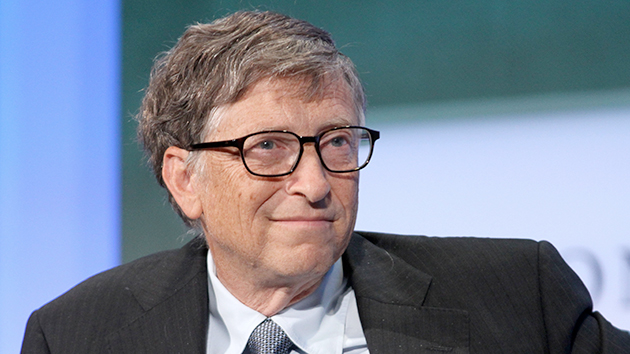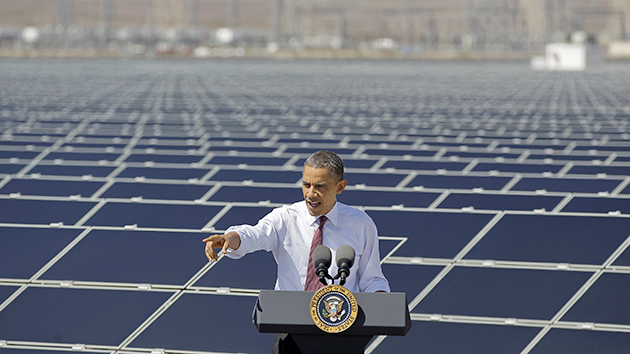
<a href="http://www.shutterstock.com/pic-155863793/stock-photo-new-york-september-bill-gates-attends-the-clinton-global-initiative-annual-meeting-at-the.html?src=r7PpIlFmM4N7TLpgT3oqdA-1-1">JStone</a>/Shutterstock
On Friday, the United Nations released a survey of the plans laid out by more than 100 countries to fight climate change. Its report uncovered some interesting trends, including that most countries are planning to invest in renewable energy and that global adaptation efforts focus first and foremost on protecting the food and water supply.
But the survey also affirmed that all this collective global action doesn’t add up to keeping global warming below 2 degrees Celsius (3.6 degrees Fahrenheit), the internationally agreed-upon goal. That brought to mind the great interview with Bill Gates that The Atlantic, one of our Climate Desk partners, recently released. In the above video, Gates points out another key flaw in the international negotiating process: Most countries’ goals focus on the progress to be made by 2030—phase one of the global push to slash greenhouse gas emissions. The United States’ goal, for example, calls for cutting emissions by about a third by that time.
If we’re really serious about keeping global warming in check, Gates argues, we need to start thinking more concretely about what comes after 2030. The Obama administration has promised that the short-term goal will get us on track to cut emissions 80 percent by 2050. But Gates cautions that that second phase will much more difficult to achieve than the first.
“Let’s be realistic about how we’re going to get to the 2050 goal,” Gates says. “There are things that have such long lead times—including innovation itself—that if they’re a part of your 2050 solution, you need to get started now. The rate of innovation should be doubled.”
To that end, Gates has pledged $2 billion out of his own pocket to invest in sustainable-energy projects. He thinks research and development funding by the United States and China needs to grow massively, since “the climate problem has to be solved in the rich countries.” In the extended interview between Gates and Atlantic editor James Bennet, he also makes a case for a “significant” global tax on carbon emissions. That’s the only way to fix the market failure that lets companies get away with the pollution caused by fossil fuels—and, he says, the only way to encourage the private sector to switch to clean energy.
“Yes, the government will be somewhat inept,” he said. “But the private sector is in general inept.”













